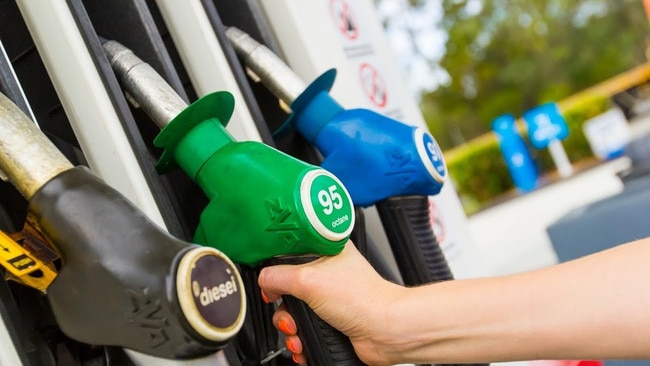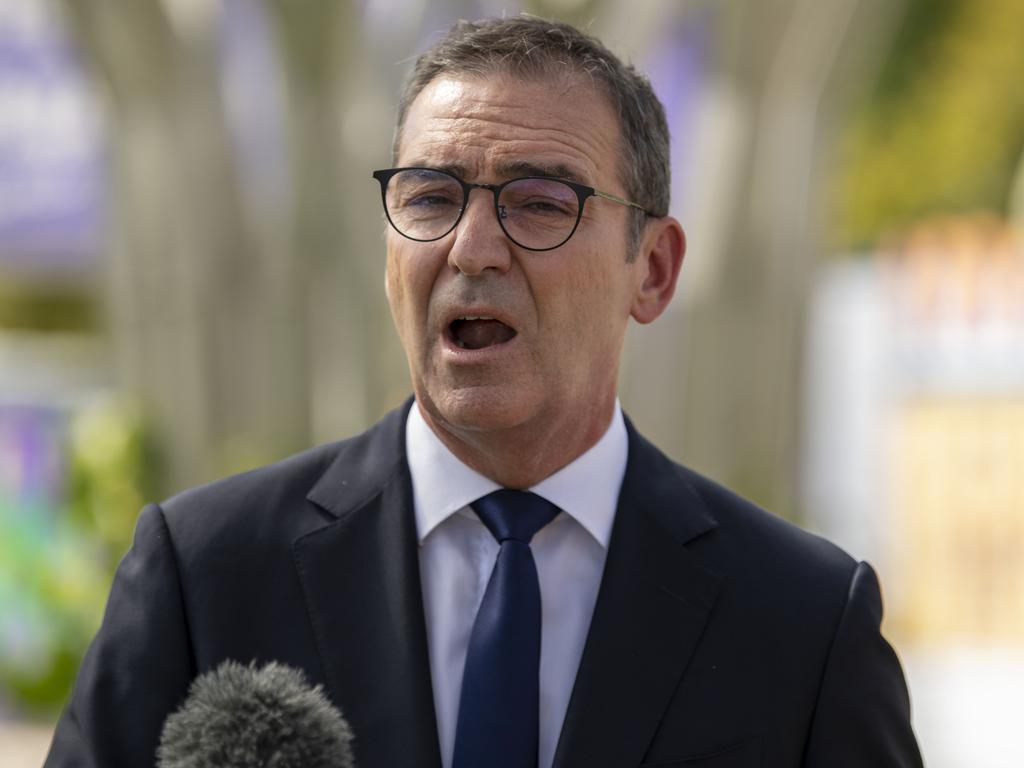Petrol prices soar to eight-year high on Ukraine war, supply constraints
Motorists face rising petrol prices, amid the fallout from the Ukraine crisis. In Adelaide, some are already paying $3 a litre.

Business
Don't miss out on the headlines from Business. Followed categories will be added to My News.
Petrol prices are set to climb further after hitting an eight-year high last month, as the Ukraine crisis unleashes supply and demand woes.
Across Australia’s major cities, petrol prices soared to eight-year highs last month on the back of supply and demand shocks and have already eclipsed that level in the first two weeks of March, hitting record highs and climbing toward $2.50 a litre.
Russia’s invasion of Ukraine and the OPEC cartel’s refusal to boost crude oil production, alongside recovering demand for oil as Covid-19 restrictions fade, pushed February prices for both international refined petrol and average retail petrol in Australia’s five largest cities to the highest level since 2014, according to the competition regulator.
Daily average retail petrol prices in Sydney, Melbourne, Brisbane, Adelaide and Perth hit 182.4c a litre by the end of February, a price not seen since 2014, according to the Australian Competition & Consumer Commission’s latest petrol monitoring report.
The pain has only worsened in recent weeks as global oil prices rocket on the Russia-Ukraine war. Motorists are now forking out well over $2 a litre at the bowser and bracing for prices to push even higher in the coming days and weeks.
CommSec on Monday warned on the outlook for oil as the Ukraine-Russia war intensifies and amid expectations that demand for crude will outstrip supply this year.
“Aussie retail unleaded petrol prices continue to hit record highs, and national pump prices could lift to $2.50 a litre in coming weeks if Russia’s “special military operation” in Ukraine becomes protracted or intensifies,” the broker said in a research note.
Indeed, some motorists in Adelaide are already facing the reality of $3 a litre after service stations hiked prices this month.
Oil prices climbed again on Friday after a brief reprieve, with Brent topping $US112.67 a barrel following a 3 per cent rise and WTI crude hitting $US109.33 after lifting 3.1 per cent as the war in Ukraine fuels a cost-of-living crisis.
But prices have come back somewhat from the highs earlier seen in the month when WTI topped $US130 a barrel — a 13-year high — and Brent reached as high as $US139, its highest level since 2008.
“The world was already experiencing high crude oil prices late last year due to the continuing actions of the OPEC and Russia cartel, and the enduring Northern Hemisphere energy crisis. The shocking events in Ukraine have forced crude oil prices even higher, as Russia is a major supplier of oil,” Australian Competition & Consumer Commission chair Rod Sims said on Monday.
“Retail petrol prices in Australia are largely determined by international refined petrol prices and the Australian/US dollar exchange rate. As refined petrol is made from crude oil, movements in the global crude oil price drive the international price of refined petrol.”
“Crude oil prices have been climbing sharply since late-2020 and prices at the bowser here have followed,” Mr Sims said.
Surging petrol prices will also see users of ridesharing platforms slugged with a fuel surcharge: Uber and Didi this week announced the additional charges this week in a bid to ease the price pain on drivers.
DiDi on Monday said it would slap a 6c per kilometre surcharge on all fares from March 21 for at least 60 days.
“At DiDi, we’re aware of the challenge faced by drivers with the recent surge in fuel prices, which has a direct impact on their operating cost,” DiDi spokesperson Dan Jordan said.
“As a response, DiDi will place a fuel surcharge on every DiDi trip across Australia for at least 60 days and hopefully assist with the added pressure they will face at the fuel pump.”
Meanwhile, Uber on Friday announced its own surcharge, also to remain in place for 60 days.
“This will be a temporary per-km based surcharge paid by riders, 100 per cent of which will go to driver-partners. This means driver-partners will receive from riders about an extra 50c on an average trip,” said Emma Foley, Uber Australia’s head of driver operations and marketplace.
“The goal of this is to reduce the burden of the unprecedented nature of recent fuel increases while keeping the Uber platform working well for everyone.”
State premiers are now calling on the Morrison government to slash the fuel excise in the upcoming budget to ease the pressure on consumers.
NSW Premier Dominic Perrottet on Sunday strongly supported cuts to the $50bn fuel tax, as did Tasmanian Premier Peter Gutwein, while SA Premier Steven has also urged Josh Frydenberg to temporarily cut the excise, which runs at 44.2c a litre.
In June 2008, just before the Global Financial Crisis hit, daily average prices reached a record high equivalent to 212.9c a litre.
Originally published as Petrol prices soar to eight-year high on Ukraine war, supply constraints





